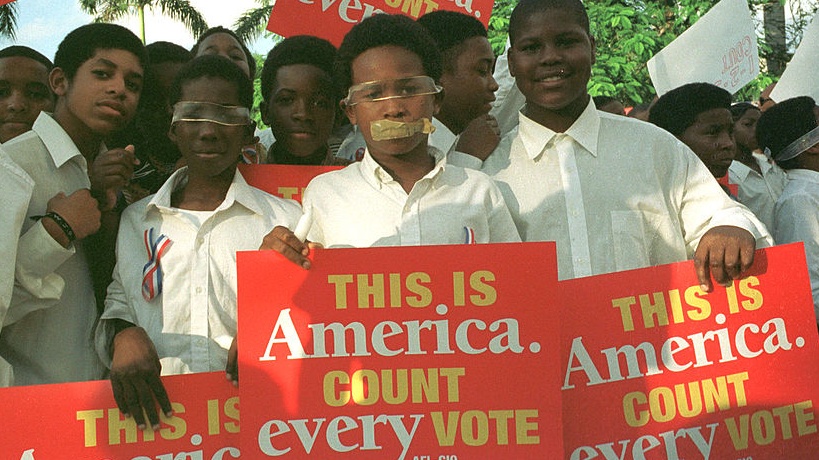A ruling by a federal appeals court Tuesday makes it so presidential electors in the Electoral College, who cast the actual ballots for president and vice president, are free to vote as they wish and cannot be required to follow the results of the popular vote in their states.
The ruling comes as many Democrats have wrestled with the idea of abolishing the Electoral College system altogether, with multiple elections in the past 20 years ending with Democratic candidates losing, even though they had more popular votes than their opponents.
“We know Electoral College contests are going to be closer in the future than they have been in the past. And as they get closer and closer, even a small number of electors could change the results of an election," Lawrence Lessig, a Harvard law professor who founded Equal Citizens and is part of its legal team, said to NBC News. "Whether you think that’s a good system or not, we believe it is critical to resolve it before it would decide an election.”
The ruling comes after Micheal Baca, a Colorado Democratic elector in 2016, crossed out Hillary Clinton's name, who he was required to vote for by state law because she won the popular vote in the state, and wrote in the name of John Kasich, a Republican and then-governor of Ohio. The secretary of state in Colorado threw out that vote and removed Baca as an elector, replacing him with another elector who voted for Clinton per state law.
“This court decision takes power from Colorado voters and sets a dangerous precedent," said Jena Griswold, Colorado's secretary of state. "Our nation stands on the principle of one person, one vote. We are reviewing this decision with our attorneys, and will vigorously protect Colorado voters.”
This latest ruling conflicts with a decision from Washington State's Supreme Court in May, which said electors must follow the results of the popular vote. Lawyers, who represented the Washington State electors and Baca in Colorado, said they will appeal the Washington ruling to the Supreme Court.
According to NBC News, if the Supreme Court were to hear the dispute, it would be able to rule on the issue before the Electoral College meets in December 2020 to cast the formal vote for president.
